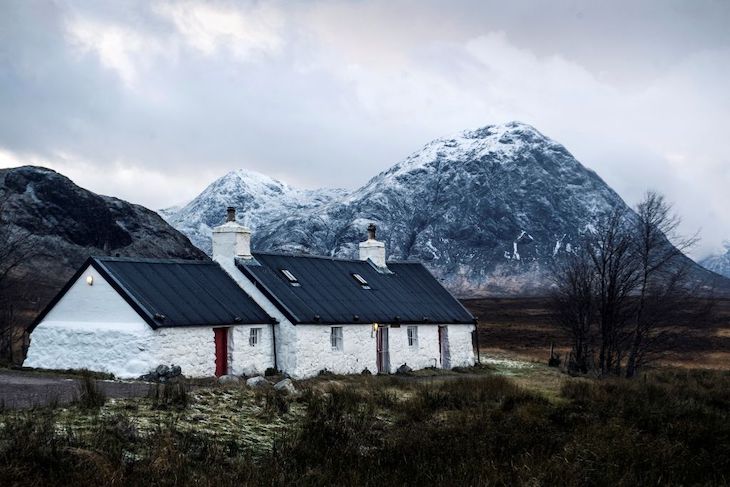It’s grim up north in Scotland, we’re told. A mission from Edinburgh has produced a report about the woes of life in the Highlands and Islands, and a demand for measures to deal with them. Problems include a high incidence of poverty; a lack of affordable housing and public transport; long trips to the nearest hospital or surgery; limited social care; cultural desertification; a lack of local places of worship suitable for refugees; limited childcare and access to fresh food; and a good deal besides.
Highlanders aren’t cowering at the feet of some megalomaniac dictator in Lochaber
So far, so predictable. But this report comes not from some progressive think-tank, but from an official body, the Scottish Human Rights Commission (SHRC). Its demands for action, moreover, are framed not so much as social policy suggestions as semi-legal claims based on international law and the need to respect human rights. So much so, indeed, that the report is being written up as showing that the Highlands and Islands are undergoing a ‘human rights crisis’.
International law? Human rights crisis? If Highlanders were cowering at the feet of some megalomaniac dictator in Lochaber, or queuing up for their daily dole at a displaced persons’ camp in Kirkwall, perhaps. But cultural deserts, bad schools, long waits for hospitals and a shortage of fresh food in the shops at times? Surely not.
Unfortunately, matters aren’t quite as clear as you might think. Like it or not, this is the disconcerting way in which human rights are now being interpreted. Traditionally, human rights may have been thought of as rights against state imposition: to life, liberty, free speech, or whatever. However, we must remember that the UK, like many other countries, has signed up to a whole raft of international agreements that on the face of could be interpreted as taking matters a great deal further. Particularly in issue here is the International Covenant on Economic Social and Cultural Rights (ICESCR), a 1966 convention that includes much more positive rights against states: to work, to social security, to an adequate standard of living, food and clothing, a high standard of health, culture, and so on.
It is this document that the SHRC has latched onto, with its usual air of dour legalism? It seems plausible. What may once have been a sad situation calling for political action can now be conveniently recast as a much more newsworthy human rights threat.
This is a development that needs to worry us. Why? Because there is actually a rather important difference between what we might think of as old-fashioned human rights treaties putting essentially negative duties on states, and instruments like the ICESCR imposing positive ones. Whatever UN functionaries, human rights lawyers and the SHRC may think on the issue, the latter are surely best seen as more aspirational than prescriptive. ICESCR signatories, remember, include all sorts of states, from the Czech Republic to China, Norway to Namibia: except on the most general of planes, attempting to apply common standards to them on social provision is a quixotic exercise.
We must also beware of letting lawyers intrude on what should be a matter for politicians. No doubt everyone would love more Highland hospitals and surgeries, better-guaranteed supplies of fresh produce, and whatever. But these aims clash with others, not least the pressing needs of the (more populous) rest of Scotland. This conflict cries out to be resolved politically and in accordance with the rough and tumble of democracy, not by reference to what a body of experts like the SHRC, however well-meaning, think is in accordance with some legalistic rule contained in a UN treaty.
There is a further insidious threat behind the SHRC proposals: they might well give rise to the dubious suggestion that treaties like the ICESCR should not only be followed as international law, but become the benchmark by which we judge human rights.
This idea is particularly alarming. It’s bad enough to have the Edinburgh great and good wagging fingers at elected politicians in Holyrood telling them how to stay in line. At least the politicians can politely decline to oblige. Infinitely worse is the risk that the Court of Session in Parliament House ends up wading in on this issue. You may not like the way elected Scots representatives currently run the country. But almost anything is better than a setting of social policy by judges in accordance with their interpretation of a thoroughly political UN document which should not be used as a constitutional instrument. Human rights enthusiasts need sometimes to learn to be very careful indeed what they wish for. It might, horror of horrors, actually come to fruition.







Comments